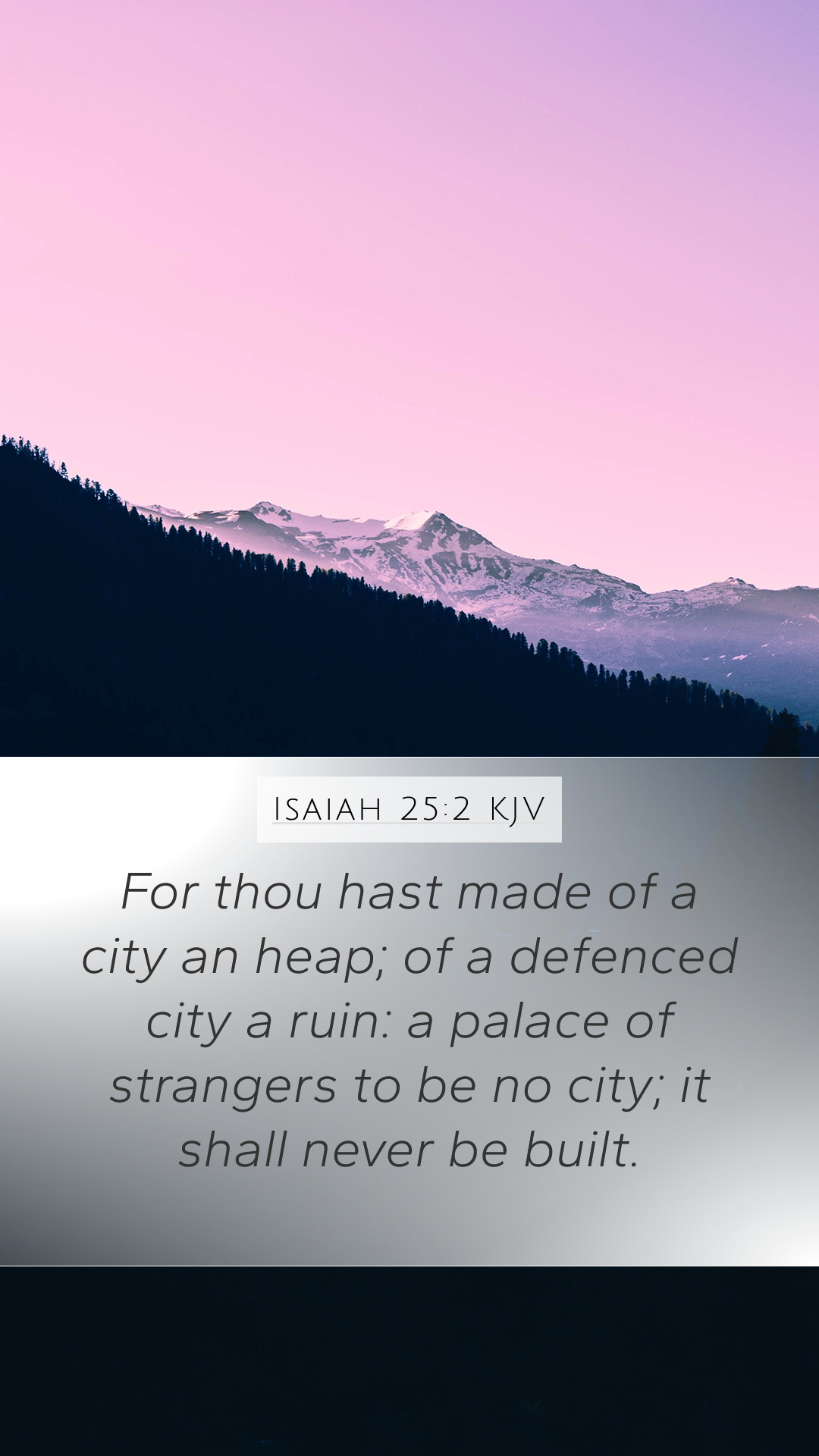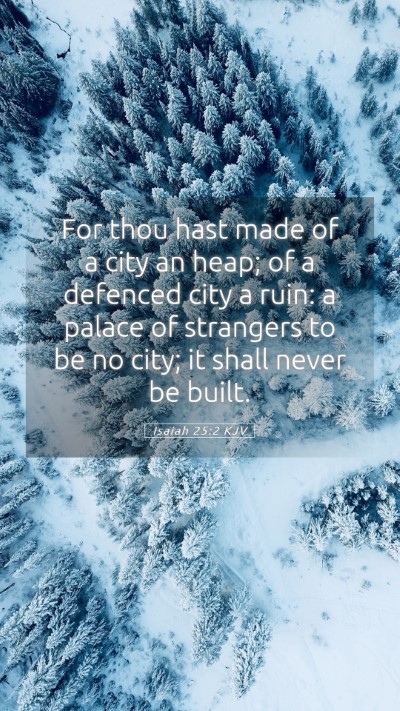Bible Verse Explanation
This verse reflects God’s judgment upon cities that stood in defiance against Him. The imagery of destruction evokes visions of God’s sovereignty over human affairs and the ultimate futility of opposing His divine will.
Bible Verse Interpretation
In Isaiah chapter 25, the prophet Isaiah praises God for His plans, which include both judgment and salvation. The destruction of the city symbolizes a comprehensive downfall of those who oppose God. Matthew Henry notes that these cities represent not just a physical place but also the pride and arrogance of those who are ungodly. Adam Clarke elaborates that the ruin signifies God's righteous wrath upon those who build their lives without regard for divine principles.
Biblical Exegesis
The structure of this verse shows a parallel construction that emphasizes the totality of the destruction. The "heap" signifies total devastation while the "ruin" indicates a state that cannot be restored. Clarke points out that this serves as a warning to all nations; those who disregard God’s law cannot expect protection from His judgment.
Contextual Meaning
Putting Isaiah 25:2 in context of the entire chapter, we see that it begins with praise for God’s plans for redemption and ends with a picture of final triumph over evil. This duality—judgment and restoration—is key in understanding how God operates throughout Scripture.
Spiritual Insights
From a spiritual perspective, those who seek to build their foundations on worldly success will find themselves undone. Henry emphasizes the need for reliance on God’s everlasting building rather than temporary structures of human design. This has profound implications for personal faith and community life.
Application of Bible Verse
Believers can take the message of Isaiah 25:2 to examine their own lives. Are we constructing fortified cities of pride that could lead to ruin? The verse serves as an invitation for introspection about our reliance on God’s foundation for our lives, as opposed to the transitory strength of earthly endeavors.
Conclusion
Isaiah 25:2 encapsulates key themes in biblical prophecy concerning judgment and restoration. Its insights call believers to a deeper understanding of God's nature—in particular, His justice and mercy. Through study and reflection, we gain not just knowledge of Bible verses but also profound insights into our relationship with God and His plans for humanity.


